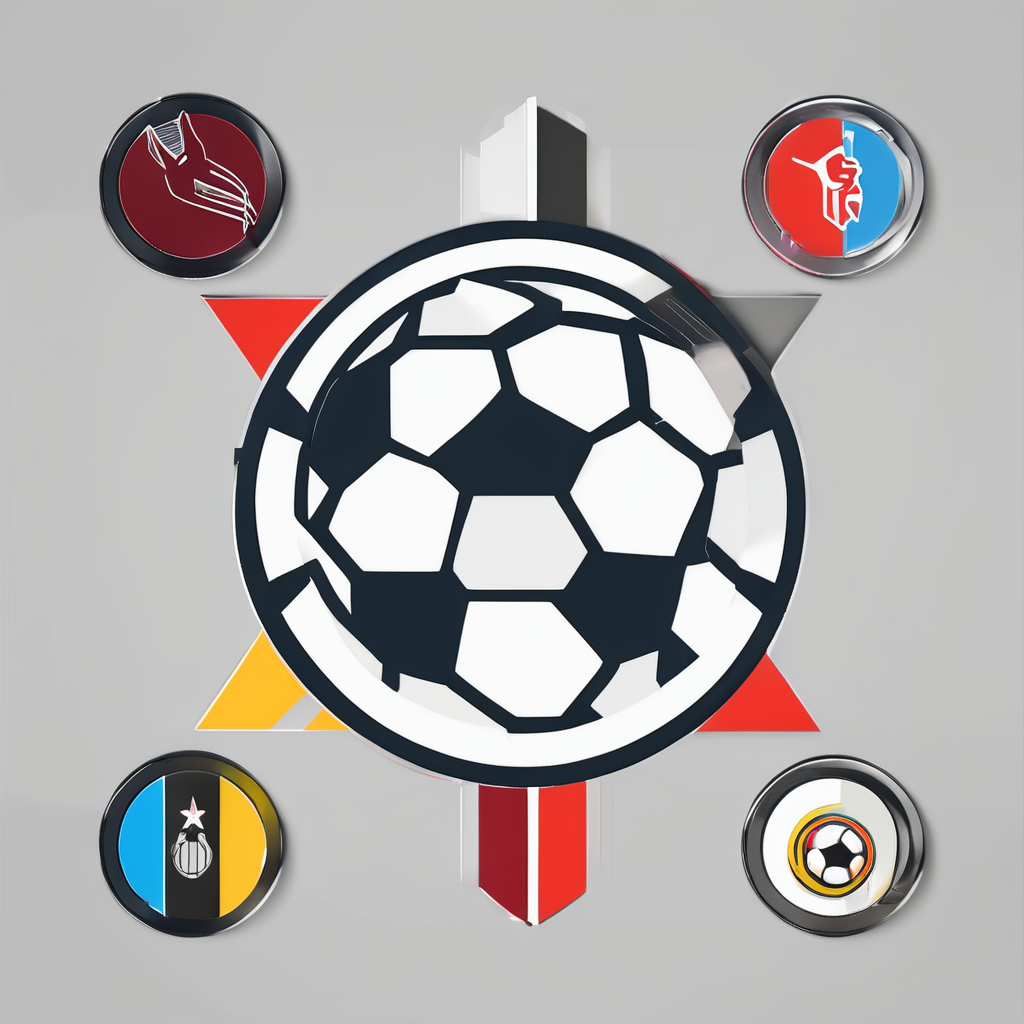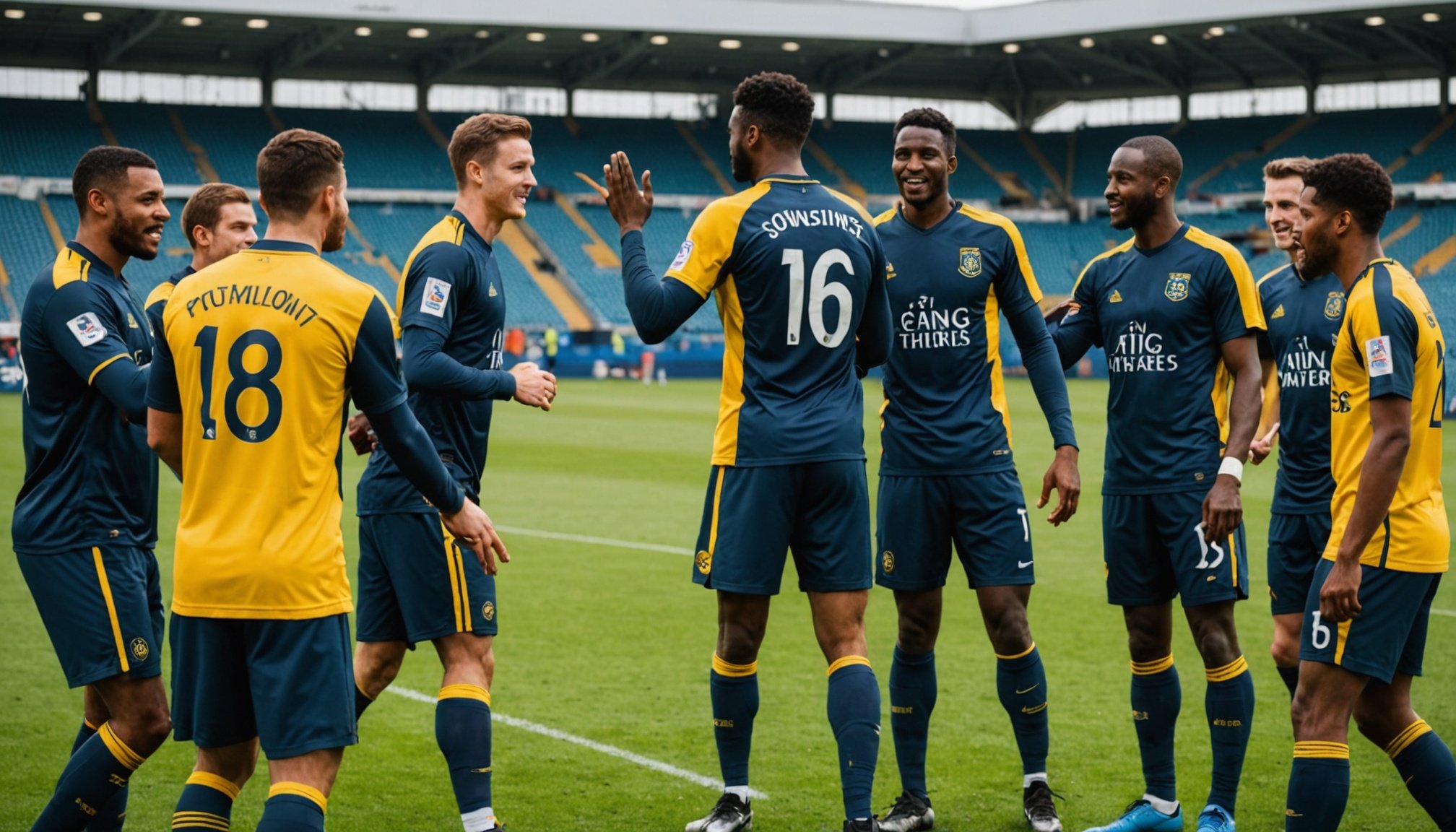Unlocking the Secrets of Effective Multicultural Communication in Football Teams: Proven Strategies for Success
In the vibrant and global world of football, teams are increasingly composed of players from diverse cultural backgrounds. This diversity, while enriching the game, also presents unique communication challenges. Effective multicultural communication is crucial for the success of any football team, and here we will delve into the strategies that can help teams unlock their full potential.
The Impact of Diverse Origins on Team Dynamics
Football, as a global sport, perfectly illustrates how the diverse origins of players enrich tactics and performance on the field. Each player brings their own cultural heritage, subtly or profoundly modifying the team’s dynamics.
Also to discover : Essential heart health management techniques for professional football athletes: key strategies for optimized monitoring and maintenance
Mixture of Techniques and Strategies
In a team composed of players from different nationalities, each individual brings their personal technical skills, often reflecting the football culture of their country. For instance, a Brazilian player might introduce a more flamboyant and technical style of play, while a German player could contribute with tactical discipline and endurance. Coaches must fuse these diverse skills to create a strategy that capitalizes on each player’s strengths.
| Player Origin | Technical Skills | Tactical Contributions |
|
|------------------|
|
| Brazilian | Flamboyant, technical | Creative playmaking |
| German | Disciplined, enduring | Tactical precision |
| African | Physically strong, creative | Adaptive gameplay |
| European | Strategically aware, team-oriented | Cohesive team play |
Impact on In-Game Communication
The diversity of origins also influences communication among players. Language, gestures, and non-verbal expressions vary across cultures, but football has a universal language on the field. Players learn to understand each other beyond words, which can strengthen team cohesion and facilitate the integration of new members.
Also to discover : Essential recovery techniques for football players over 30: boost your performance and well-being
Enriching Tactical Approaches
The input of diverse tactical perspectives can enrich a team’s game. Coaches benefit from this diversity to adapt their approach based on the opponent, using strategies that are a compilation of the best practices from different cultures. This can confer a significant strategic advantage in international competitions, where the ability to surprise and adapt is crucial.
Examples of Successful Multicultural Teams
Teams like the French national team, which won the 2018 World Cup, exemplify the success of multicultural teams. With players from various backgrounds, including African, European, and Caribbean roots, the team’s diversity was a key factor in their victory.
Challenges and Opportunities of Multicultural Teams
Hosting players from diverse origins is not without challenges. It is essential for the technical staff and team management to foster an inclusive and respectful environment for all cultures. This can include diversity training and team-building activities specifically designed to promote harmony and mutual understanding.
Overcoming Cultural Barriers
Christian Gourcuff, during his tenure as the coach of the Algerian national team, faced criticism for his experimental player selection methods. This highlights the need for foreign coaches to adapt to the local culture and mindset, as well as the expectations of leaders and fans[2].
Strategies for Effective Multicultural Communication
Inclusive Team Building Activities
Organizing team-building activities that promote intercultural understanding is vital. Here are some strategies that can help:
-
Role-Playing Games: These games can help team members understand each other’s perspectives. For example, a role-playing scenario where players act out different roles, such as a dissatisfied customer, can improve communication and empathy[3].
-
Sports Activities: Sports are an excellent way to reinforce team cohesion. Organizing friendly tournaments in sports like football, basketball, or even running can foster teamwork, motivation, and a healthy competitive spirit[4].
-
Creative Workshops: Creative workshops, such as group painting sessions or brainstorming sessions, can help team members step out of their comfort zones and explore new ideas. These activities promote collaboration and creativity[3].
Key Insights from Successful Coaches
Coaches like Hugo Broos, who managed the South African national team, emphasize the importance of reading the game and adapting the system based on the opponent. This flexibility is essential for success in international competitions[2].
Practical Advice for Coaches and Players
-
Cultural Sensitivity Training: Providing training on cultural diversity can help coaches and players understand and respect different cultural backgrounds.
“`plaintext
-
Understand the local culture and mindset.
-
Be open to different communication styles.
-
Foster an inclusive team environment.
“` -
Adaptive Tactics: Coaches should be willing to adapt their tactics to leverage the strengths of players from different cultural backgrounds.
“`plaintext
-
Analyze the strengths and weaknesses of each player.
-
Use a mix of strategies from different football cultures.
-
Be flexible in game plans to surprise opponents.
“`
The Role of Leadership in Multicultural Teams
Effective leadership is crucial in multicultural teams. Here are some key strategies that leaders can employ:
Empowering Team Members
Leaders should empower team members to take ownership of their roles and contribute their unique perspectives.
- Encourage open communication.
- Recognize and reward individual contributions.
- Foster a culture of inclusion and respect.
Motivational and Dynamic Leadership
A motivational and dynamic leader can inspire the team to perform at their best. As a TEDx speaker and bestselling author once said, “Leadership is not about titles, positions, or flowcharts. It is about one life influencing another.”
Case Study: The French National Team
The French national team’s success in the 2018 World Cup is a prime example of effective multicultural leadership. The team’s coach, Didier Deschamps, managed to bring together players from diverse backgrounds and create a cohesive unit that excelled on the field.
The Impact of Mental Health and Well-being
Mental health and well-being are critical components of a team’s success. Here’s how teams can prioritize these aspects:
Creating a Supportive Environment
Teams should create a supportive environment where players feel comfortable discussing their mental health issues.
- Provide access to mental health professionals.
- Encourage open discussions about mental health.
- Foster a culture of empathy and understanding.
Balancing Physical and Mental Preparation
Both physical and mental preparation are essential for high performance. Teams should invest in nutrition, physiotherapy, and sports psychology to maximize their potential.
- Invest in sports psychology programs.
- Ensure balanced nutrition and physical training.
- Provide resources for mental health support.
: Unlocking Transformative Success
Effective multicultural communication in football teams is not just a challenge but an opportunity for transformative success. By embracing diversity, adapting tactics, and fostering inclusive environments, teams can elevate their performance and achieve greatness.
As an award-winning motivational speaker once said, “Diversity is not just about numbers; it’s about creating an environment where everyone feels valued and included.” By following these strategies, football teams can unlock their full potential and succeed on the global stage.
Final Thoughts
In the words of a dynamic keynote speaker, “The key to success in multicultural teams is not just about winning games; it’s about building a cohesive unit that respects and values diversity.” By empowering teams, promoting inclusion, and prioritizing mental health, football teams can achieve not only success but also a lasting legacy.
| Strategy | Benefits |
|
|-------------------------------------------------------------------------|
| Inclusive Team Building | Fosters cohesion, improves communication |
| Adaptive Tactics | Leverages player strengths, surprises opponents |
| Empowering Leadership | Inspires team members, promotes ownership |
| Mental Health Support | Ensures well-being, maximizes performance |
| Cultural Sensitivity Training | Promotes understanding, respect |











